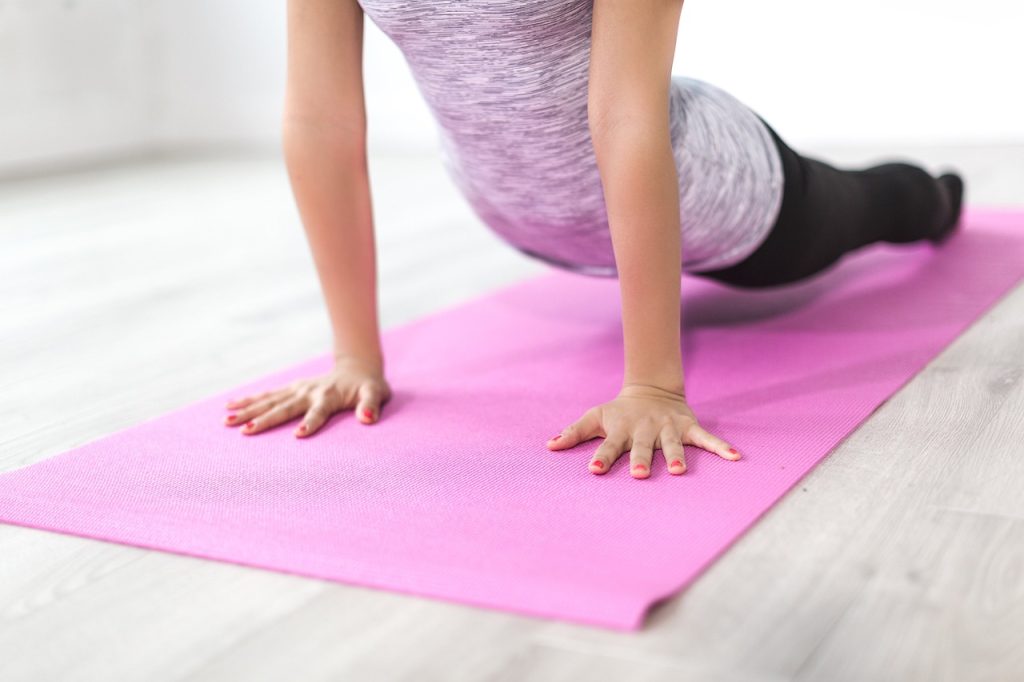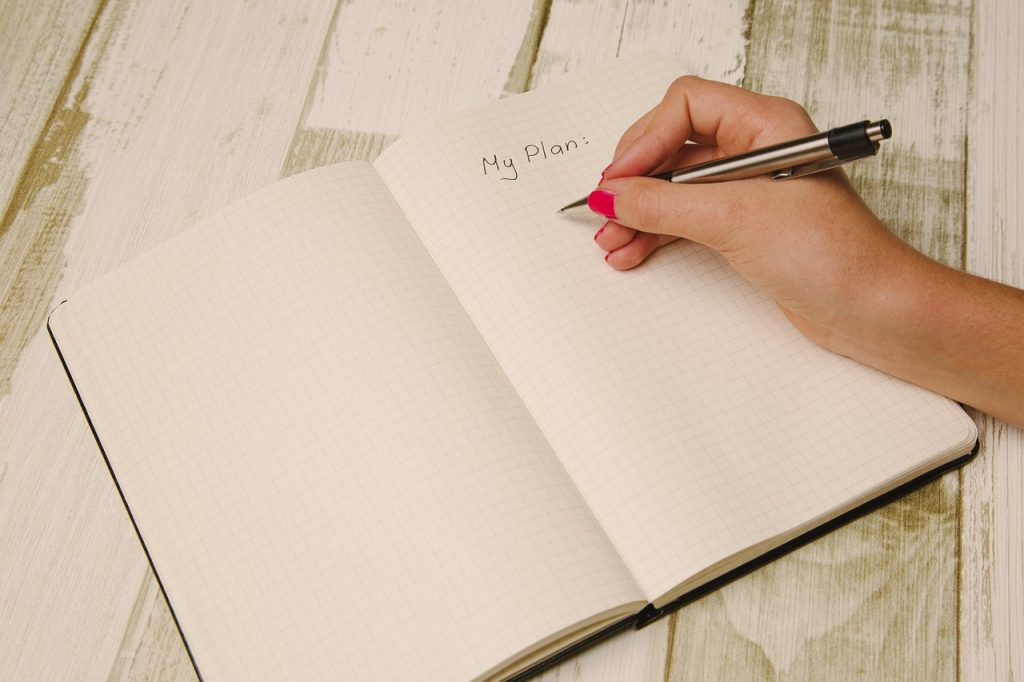A great morning routine is crucial for starting the day off on the right foot and setting the tone for a stress-free day. There are several key components that can be incorporated into a morning routine to help reduce stress and improve overall well-being.
Wake Up at the Same Time Each Day

First and foremost, waking up at the same time each day is important for regulating the body’s circadian rhythm. The body’s circadian rhythm is an internal 24-hour “clock” that regulates many physiological processes, including sleep and wakefulness. This biological process is controlled by the hypothalamus, a region of the brain that receives input from various external cues, such as light and temperature, to help synchronise the body’s internal clock with the external environment.
The circadian rhythm plays a crucial role in regulating the body’s sleep-wake cycle. It helps to control the release of hormones that promote wakefulness during the day and promote sleep at night. For example, during the day, the hypothalamus releases cortisol, a hormone that helps to increase alertness and energy levels. At night, the hypothalamus releases melatonin, a hormone that promotes sleep.
Mood, Mental and Physical Health, Blood Pressure, and Digestion
Circadian rhythm also affects the release of other hormones and can affect our body temperature, blood pressure, and digestion. These fluctuations can affect our mood, mental and physical performance, and overall health. For example, the body temperature is lower during sleep and increases when we wake up, and our digestion is less active at night, which can affect our appetite and digestion.
Disruptions to the body’s circadian rhythm can lead to a variety of health problems. For example, shift work, jet lag, and exposure to artificial light at night can all disrupt the body’s circadian rhythm and lead to insomnia, fatigue, and an increased risk of chronic diseases such as diabetes and cardiovascular disease.
There are several ways to help regulate the body’s circadian rhythm and promote healthy sleep. These include:
- Sticking to a consistent sleep schedule
- Getting regular exposure to natural light during the day
- Avoiding exposure to artificial light at night
- Practising relaxation techniques before bed
- Avoiding caffeine, nicotine, and alcohol close to bedtime
It’s important to remember that every person’s circadian rhythm is unique and what works for one person may not work for another. It’s important to pay attention to your own body’s signals and make adjustments as needed. Taking care of your body’s circadian rhythm can have a significant impact on your overall health and well-being.
So, to paraphrase all the above,, the body’s circadian rhythm is an internal 24-hour “clock” that regulates many physiological processes, including sleep and wakefulness. It is controlled by the hypothalamus and it’s important to keep it synchronised with the external environment. Disruptions to the body’s circadian rhythm can lead to a variety of health problems, but it can be regulated by sticking to a consistent sleep schedule, exposure to natural light, avoiding artificial light and practising relaxation techniques.
Engage in Light Physical Activity or Stretching

Engaging in light physical activity or stretching in the morning is a great idea for a variety of reasons. There are several benefits to incorporating some form of movement into a morning routine, including improved physical and mental well-being.
One of the most obvious benefits of morning physical activity or stretching is that it helps to wake up the body and get the blood flowing. This can help to increase energy levels and improve overall alertness, making it easier to tackle the day ahead. A light workout in the morning can also help to set the tone for the rest of the day, making it more likely that you’ll continue to engage in physical activity throughout the day.
Physical activity in the morning also has a positive impact on our mood and mental well-being. Exercise releases endorphins, also known as “feel-good” hormones, which can help to improve mood and reduce stress. A morning workout can also help to clear the mind and set a positive tone for the day, making it easier to tackle any challenges that may arise.
Stretching in the morning can also be beneficial for our physical well-being. When we sleep, our muscles and joints may become stiff, and stretching can help to loosen them up and increase flexibility. This can help to reduce the risk of injury and improve overall mobility.
Positive Impact on Our Overall Health
Morning physical activity or stretching can also have a positive impact on our overall health. Regular exercise has been linked to lower blood pressure, improved cholesterol levels, and a reduced risk of heart disease, among other health benefits.
It’s important to note that the level of physical activity and stretching that is beneficial for an individual will vary based on their fitness level and health condition. However, even a few minutes of light stretching or a quick workout can have a positive impact on our overall well-being.
To summarise, engaging in light physical activity or stretching in the morning is a great idea for a variety of reasons. It helps to wake up the body and get the blood flowing, improve mood and mental well-being, reduce the risk of injury and improve overall mobility, and positively impact our overall health. Even a few minutes of light stretching or a quick workout can have a positive impact on our overall well-being. It’s important to find something that works for you and make it a part of your morning routine.
Eat a Healthy Breakfast

Eating a healthy breakfast is an essential part of starting the day off right. Not only does it provide the body with the energy and nutrients it needs to function properly, but it also has a number of other benefits that can positively impact overall health and well-being.
One of the most important reasons to eat a healthy breakfast is that it helps to jumpstart the metabolism. After sleeping for several hours, the body’s metabolism slows down, and it needs energy to start functioning again. Eating a healthy breakfast provides the body with the energy it needs to start the day, which can help to increase energy levels and improve overall alertness.
Eating a healthy breakfast can also help to regulate blood sugar levels. Skipping breakfast or eating a high-carbohydrate breakfast can cause a spike in blood sugar levels, which can lead to feelings of fatigue and irritability later in the day. A healthy breakfast, on the other hand, can help to keep blood sugar levels steady, which can help to improve mood and mental clarity.
A healthy breakfast can also help to improve overall health. Eating a balanced breakfast can provide the body with the necessary vitamins and minerals it needs to function properly. For example, a breakfast that includes whole grains, fruits, and vegetables can provide the body with important nutrients such as fiber, vitamins, and antioxidants.
Healthy Breakfasts Can Promote Weight Loss
Eating a healthy breakfast can also help to promote weight loss. Many people skip breakfast in an effort to cut calories, but this can actually have the opposite effect. Skipping breakfast can lead to overeating later in the day, which can cause weight gain. Eating a healthy breakfast, on the other hand, can help to control hunger and curb cravings, making it easier to maintain a healthy weight.
It’s important to note that what constitutes a “healthy” breakfast will vary depending on an individual’s dietary needs and preferences. A healthy breakfast can include a variety of foods such as whole grains, fruits, vegetables, lean protein, and healthy fats. It’s important to find something that works for you and make it a part of your morning routine.
Summarising, eating a healthy breakfast is an essential part of starting the day off right. It provides the body with the energy and nutrients it needs to function properly, helps to regulate blood sugar levels, improves overall health, and can help to promote weight loss. Skipping breakfast can lead to overeating later in the day, which can cause weight gain. It’s important to find something that works for you and make it a part of your morning routine.
Plan Out the Day’s Tasks and Priorities

Planning out the day’s tasks and priorities is a good idea for a variety of reasons. It can help to increase productivity, reduce stress, and improve overall organisation.
One of the main benefits of planning out the day’s tasks and priorities is that it can help to increase productivity. By taking the time to think about what needs to be done and organising it in a logical order, it’s more likely that tasks will be completed in a timely and efficient manner. This can help to save time and increase overall productivity.
Planning out the day’s tasks and priorities can also help to reduce stress. When we have a clear understanding of what needs to be done, it’s less likely that we’ll become overwhelmed by the amount of work we need to do. This can help to lower stress levels and improve overall well-being.
Planning out the day’s tasks and priorities can also help to improve overall organisation. When we have a clear understanding of what needs to be done, it’s more likely that we’ll be able to stay on top of things and avoid forgetting important tasks. This can help to improve overall organisation and reduce the likelihood of missing deadlines or important appointments.
No One Rule for Planning Day’s Tasks
It’s important to note that planning out the day’s tasks and priorities can take many forms, depending on an individual’s needs and preferences. For some, it may be as simple as making a to-do list, while others may prefer to use a more detailed planner or calendar. The important thing is to find a system that works for you and make it a part of your daily routine.
In conclusion, planning out the day’s tasks and priorities is a good idea for a variety of reasons. It can help to increase productivity, reduce stress, and improve overall organisation. When we have a clear understanding of what needs to be done, it’s less likely that we’ll become overwhelmed by the amount of work we need to do, and it’s more likely that we’ll be able to stay on top of things and avoid forgetting important tasks. The important thing is to find a system that works for you and make it a part of your daily routine.
Take Time to Relax

Taking time to relax in the morning is important because it sets the tone for the rest of the day. When we wake up in the morning, we are often rushed to get ready for work or school and start our daily routines. However, by taking a few moments to relax and clear our minds, we can start the day with a sense of calm and focus.
One of the main benefits of relaxing in the morning is that it can help reduce stress and anxiety. Many of us have busy lives and are constantly on the go, which can lead to feelings of overwhelm and stress. By taking a few minutes to relax and breathe deeply, we can help reduce these feelings and start the day with a clear head.
Great for Mental Well-Being
Another benefit of relaxing in the morning is that it can improve our overall mood and mental well-being. When we start the day feeling calm and focused, we are more likely to approach our tasks with a positive attitude and a sense of purpose. This can lead to greater productivity and a more enjoyable day overall.
Finally, taking time to relax in the morning can also help improve our physical health. Many of us spend a lot of time sitting at desks or in front of screens, which can lead to tension and pain in the body. By taking a few moments to stretch and move our bodies, we can help reduce these symptoms and feel more energised throughout the day.
Overall, taking time to relax in the morning is an important aspect of self-care and can have a positive impact on our overall well-being. Whether it is through meditation, yoga, or simply taking a few deep breaths, taking a few minutes to relax in the morning can help us start the day feeling calm, focused, and ready to take on whatever challenges come our way.
Wrapping a Great Morning Routine Up
In conclusion, a good morning routine can include a combination of these key elements, and it can be tailored to the individual’s needs and preferences. The most important thing is to make sure it is consistent and that you make time for yourself to start your day feeling energised and stress-free.
If you’re looking for more great ideas about how to live your best life, then head over to our blog where you will find tones of posts.
Read More
- Causes, Prevention, and Treatment of the 6 Different Types of Acne
- 7 Reasons Why Loving Your Job is Important
- A Guide to Understanding the Causes of Obesity
- How to Choose the Right Acne Treatment for Your Skin Type
- The Four Main Components of Emotional Intelligence
Disclaimer: The information provided on Healthy Lifestyles for All is intended for general educational purposes only and should not be considered as medical advice. Please consult with your GP or other health professional before making any significant changes to your diet, exercise routine, or any other aspect of your lifestyle. We are not responsible for any adverse effects or consequences resulting from the use of the information provided on our blog.
Comments: I hope you enjoyed reading this post as much as I enjoyed writing it. If you liked it, please leave a comment. If you didn’t like it, disagree with something I have written (I’m okay with that), or think I got something wrong (that’s okay too), please leave a comment as well. We only truly learn from our mistakes, so I am happy to have mine pointed out.
Affiliate Links: Please also note that I may make a small amount of money if you buy one of the products I recommend in any of my blog posts. Rest assured that I have done my own due diligence, and only recommend products that have been tried and tested, and have extremely good feedback. Additionally, many of the products I recommend have 30 or 60-day money-back guarantees, so you can buy in the confidence that if a particular product is not right for you, you can get a refund.

